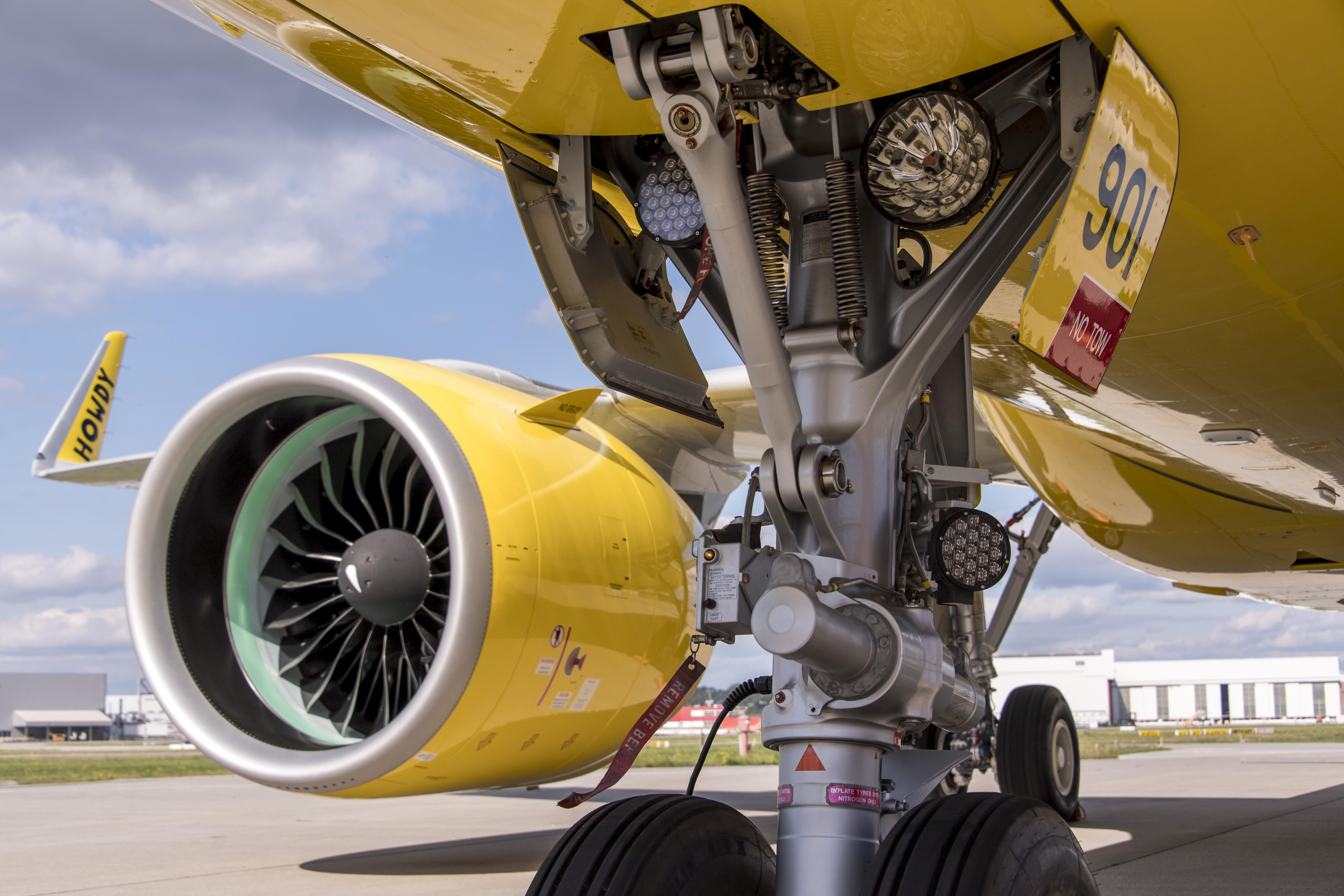
Spirit Airlines Airbus A320neo and PW1000 engine
Operators grappling with Pratt & Whitney PW1000G geared turbofan (GTF) availability due to the engine’s disappointing reliability and resulting flood of unscheduled repair demand should not expect much improvement anytime soon, Raytheon Technologies CEO Gregory Hayes acknowledges.
“Our customers are not particularly happy with the fact that we can’t get engines to them in time because of the large numbers that are coming in for all of these retrofits,” Hayes said at a Barclays investor conference Feb. 22. “So that will be a challenge for us all year long.”
The GTF’s early service years have been scarred by a series of reliability issues. Pratt’s fixes have lifted the GTF’s on-wing time to “somewhere around 10,000 hr.” between overhauls, Hayes said. That’s about half as long as the IAE V2500.
“We’re still not where we need to be,” Hayes said. “The challenge over the next five years is to get the reliability from where it is today to V2500-like reliability.”
Shorter-term, Pratt is working with affected customers to keep aircraft flying. Spirit Airlines is among the affected carriers that has spoken out publicly. A lack of airworthy engines is one driver behind the ULCC’s cut in projected 2023 capacity.
“We do make an assumption that we’re going to be collectively with Pratt resolving the [engine] availability issue ... throughout the remainder of this year, such that by the time we hit the fourth quarter, we’re able to support full utilization, which would include aircraft that are currently unable to be operated,” Spirit President and CEO Ted Christie said on a recent earnings call. “This is not just a Spirit issue. Pratt & Whitney continues to struggle to support its worldwide fleet of [Airbus A320neos] as MRO capacity remains constrained and turnaround times for engines in the shop have been nearly three times longer than the historical averages” for Airbus A320ceo engines.
Adding to the hurdles is an expected uptick in scheduled GTF shop visits as the fleet gets busier and continues to age.
“GTF shop visits are also increasing this year,” Hayes said. “That’s going to be a challenge to make sure that we can keep the airplanes in the air with the engines going through the shop as often as they have been.”


